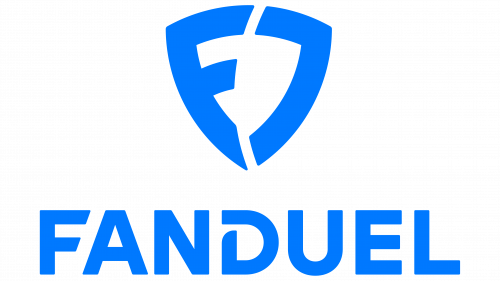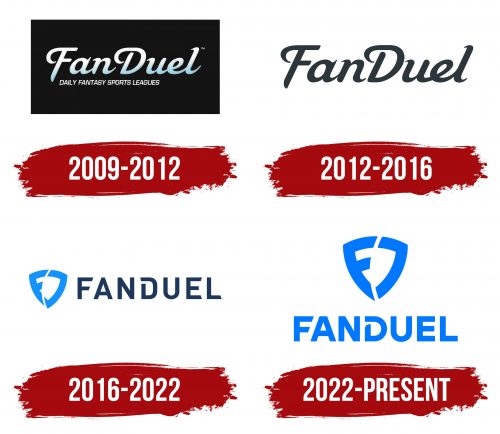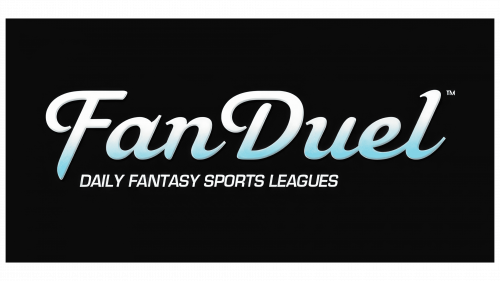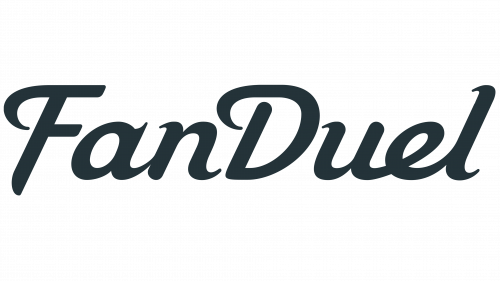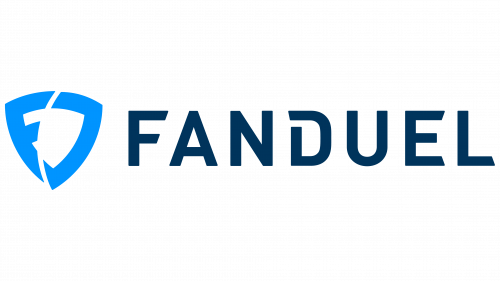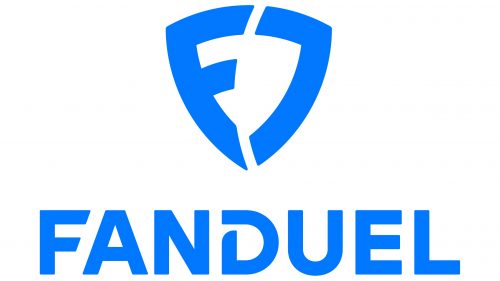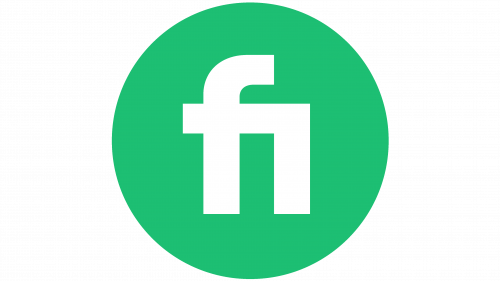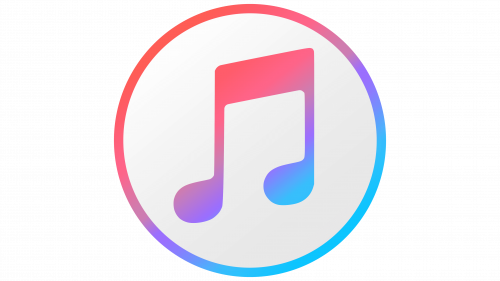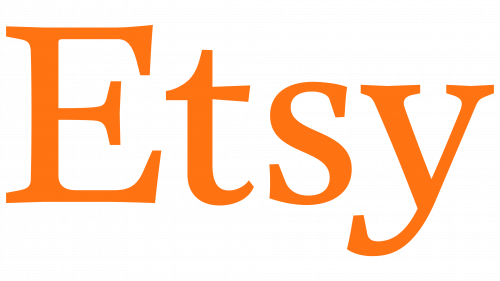The FanDuel logo combines fantasy and epic battles with modern technology. The platform provides users a secure way to feel part of exciting tournaments, immerse themselves in the competitive atmosphere, and imagine themselves as unbeatable athletes. The design elements feature clear lines that symbolize stability, reliability, and a hint of substantial winnings worth fighting for.
The emblem’s aesthetics emphasize the dynamics of sports tournaments and confidence in the process’s safety and fairness. It reflects the concept of victory, achievements, and personal involvement in events that offer real rewards.
FanDuel: Brand overview
FanDuel was founded in 2009 in Edinburgh, Scotland, by entrepreneurs Nigel Eccles, Leila Janah, Tom Griffiths, Rob Jones, and Chris Stafford. After initially working on the news prediction website Hubdub, the team quickly shifted focus to the more lucrative daily fantasy sports market.
In a departure from traditional season-long fantasy leagues, FanDuel introduced its first version of a daily fantasy sports platform in 2009, allowing players to compete in one-day events. This innovative approach immediately attracted investor interest.
2010 marked a breakthrough year for the platform, raising $1.2 million in its first major funding round from Pentech Ventures and Scottish Enterprise. This funding allowed the team to expand its workforce and enhance platform features.
In 2011, the company established its first partnerships with major sports leagues, including multiple NBA teams, bolstering user trust and strengthening its market position.
The organization experienced substantial growth in 2012, securing $11 million in Series C funding from Comcast Ventures. That same year, a mobile app was launched, significantly boosting its user base.
Expansion continued in 2013 by introducing new game formats and refinements to the user interface. The company also began actively expanding its network of partnerships.
2014, the team raised $70 million and entered partnerships with multiple NFL teams, marking a historic year. The same year saw the launch of the FanDuel Championship, a major competition with a $1 million prize pool.
In 2015, an additional $275 million in funding significantly increased the company’s valuation, alongside partnerships with major media companies and sports leagues. In 2016, due to antitrust concerns, the US Federal Trade Commission blocked an attempted merger with its chief competitor, DraftKings.
A pivotal moment came in 2017 when Irish bookmaker Paddy Power Betfair (now Flutter Entertainment) acquired a majority stake in the platform for $465 million.
The sports betting landscape in the US changed dramatically in 2018. Following the repeal of the federal ban on sports betting, the platform became the first licensed sportsbook in New Jersey, quickly establishing a foothold in the market.
In 2019, sports betting operations expanded to multiple new states, greatly increasing market share. The team also introduced new features and updated the user interface.
Between 2020 and 2021, the online gambling industry experienced substantial growth. The company expanded into additional regions and launched an online gambling platform. In 2022, it strengthened its market position by launching new products and building partnerships with media outlets and sports leagues, investing heavily in user experience and advancing its technology infrastructure.
Throughout its history, the company has demonstrated an ability to adapt to market and regulatory environment changes. From a daily fantasy sports start-up, it has grown into one of the largest players in the US sports betting industry. The success can largely be attributed to strong alliances with key figures in the sports and entertainment sectors.
Meaning and History
What is FanDuel?
This leading sports entertainment platform offers many betting options, from traditional sports gambling to daily fantasy contests and thrilling horse racing. Sports fans can test their skills by creating fantasy lineups, making calculated bets, or playing casino games on a platform that combines modern technology with intuitive interfaces, delivering an engaging experience. Competing for real cash prizes, users can add even more excitement to their favorite games—a one-stop shop for those looking to heighten the thrill of sports competitions.
2009 – 2012
The brand’s emblem resembles a computer or movie theater screen, where the title appears in large letters before the film begins. This symbol announces an upcoming spectacle, like the introduction to an exciting performance.
The white script with a blue gradient visually transports the viewer to a fantastic world where imagination envelops the surrounding objects in a light mist. The elongated glyph of the first letter visually resembles a sharp sword, symbolizing future battles and intrigues. The name itself was not chosen by chance; it comes from the abbreviation “Fantastic Duel” and refers to fans of this type of entertainment.
Below the name is the brand’s motto, which emphasizes the company’s main offering: “Daily fantasy sports leagues.” This reflects the platform’s idea of providing the opportunity for daily participation in fantasy sports leagues, creating a sense of constant immersion in the world of tournaments and competitions, where everyone can showcase their skills.
2012 – 2016
The emblem was updated in preparation for the first fantasy football championship. The dark black background was removed, leaving the focus on the name itself. The fantastic style of the font was preserved, but the color was changed to black-gray to give the logo a new character. The white base now symbolizes freedom, emphasizing the essence of football as a sport played in open spaces.
The black color in the logo remains an important element, reflecting the strength and endurance of the players, as well as the seriousness and intensity of the upcoming competition. In this updated form, the emblem conveys a sense of intense competition and readiness for decisive action on the field while maintaining a connection to the world of fantasy, making it relevant for fantasy-format tournaments.
2016 – 2022
After the merger with DraftKings began, a new graphic element appeared in the design—a shield. This is likely a nod to the crown in the partner’s logo and a symbolic attribute of the fantasy world. The shield emphasizes battles and competitions, reflecting the essence of fantasy sports tournaments.
The curved white stripe on the shield forms the left side of the symbol as an “F” and the right side as a “D,” symbolizing the unification of the two brands. The company’s name is capital letters, giving it a more substantial and confident look. The diagonal lines and the open semicircle in the letter “D” harmonize with the cut on the shield, creating a cohesive and dynamic image.
2022 – today
The FanDuel logo is designed in a minimalist style, focusing on the blue color and simplicity of lines. The blue color is associated with digital technology, confidence, and modernity, emphasizing the brand’s connection to the online world. This shade of blue might remind one of a TV’s “blue screen,” which logically ties the brand to television and sports, especially considering the relaunch of FanDuel TV.
The shield, positioned to the left of the name, symbolizes protection and stability. Its shape is visually divided, giving a sense of dynamism and development. It echoes the company’s forward movement and adaptation to new market realities. Inside the shield is a stylized letter “F,” which appears cracked or split in the middle, adding a sense of dynamism and hinting that the company is ready to challenge conventional standards.
The letters in the name “FANDUEL” are uniform in style and equally bold, adding a sense of stability and strength. The letter “D” is an interesting detail, which looks unusual due to its truncated left edge. This design choice adds individuality and memorability to the logo. The massive and clear lines of the font convey confidence and reliability, showing that this is a platform one can depend on. All elements, from the shield to the font, are harmoniously combined, creating a cohesive visual image.
One of the main elements, the shield, adds symbolism to the emblem related to protection, reliability, and support. It signals to users that the platform strives to ensure safety and confidence in its use, whether sports betting or participating in fantasy sports.
The name consists of “Fan” — a supporter—and “Duel” — a competition. This name points to the platform’s competitive aspect, where users compete. It easily conveys the company’s essence: creating a space for fans to compete.
